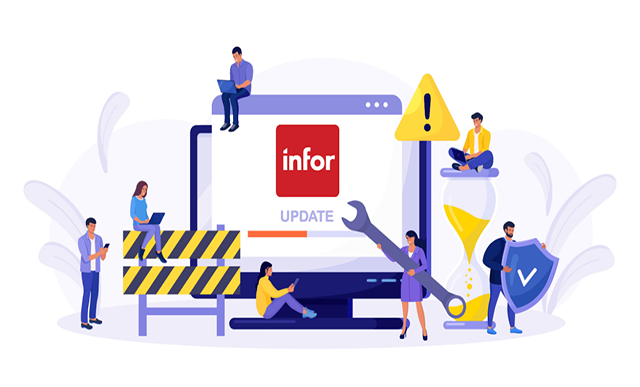According to McKinsey, the average success rate for transformation projects is only 31%, with significant value loss during implementation, underscoring the critical importance of effective software testing to improve ERP migration outcomes.
In 2021, McKinsey revealed that the average success rate for transformations is 31%. That’s shocking, right? That means, for instance, that your next ERP migration is more likely to fail than it is to succeed. Here are some more scary stats from the same research:
- Organizations that ran successful transformations reported that they realized just 67% of the maximum financial benefits they could have achieved. For other organizations, it was just 37%.
- 35% of the value of a transformation is lost during the implementation phase.
- It takes up to 18 months for most organizations to realize just half of the value of their transformation. Companies with top-quartile financial performance get 74% of the value in the first 12 months.
Now, McKinsey is talking broadly about transformation projects here – not just the implementation of new ERP systems. But it echoes a (now ancient) statistic from Gartner from 2010, stating that between 55% and 75% of ERP implementation projects fail.

So, what can you do about it?
When it comes specifically to ERP transformations, including migrations to cloud ERP, any organization looking to boost their chances of success would benefit from reviewing their testing processes.
The link between software testing and implementation success
This should be obvious. Software testing makes sure that your new ERP actually, you know, works. The consequences of your ERP not working can be serious, as we’ve talked about here and also here. Those consequences include:
- Reduced productivity, employee morale, and engagement as users struggle with an ERP system that doesn’t work.
- Financial loss as users are unable to do their jobs at all thanks to a broken ERP system.
- Reputational damage a customers endure a drop in customer service, or can’t buy from you at all.
- Lawsuits and regulatory fines as angry shareholders or regulatory bodies notice that you’re failing in your obligations due to broken software (rare, but not impossible).
Better testing gives your ERP a better chance of working, making your implementation a success, and helping you get all the value out of your transformation, faster.
How much of a difference does software testing make?
By our estimation, testing accounts for around 60% of the effort in a software migration. Halving that time (as you can do with our UAT solution), therefore, would shorten the entire implementation phase by a third. That would help you realize that value McKinsey is talking about faster.
Better software testing also catches more bugs, improving the quality of the software you’re releasing to the organization. Better software would help increase the total value that you can realize from your transformation.
On top of this, our software testing platform lets you turn test results into guides that you can use to train users in software. McKinsey highlights the role of “influencers” who can drive transformation; they believe that using influencers to support other employees, role model new mindsets and behaviours, and disseminate best practices and knowledge throughout your organization can increase the chance of a successful transformation by 10-20%. Armed with these guides, your business users who have been involved in UAT can become those influencers.
Make ERP transformation happen for your organization
We know, it’s easy to bandy about McKinsey stats and sound impressive, but how does any of that translate into real life?
Simple: get in touch with us, and we’ll show you.
Our team specializes in turning the head-in-the-clouds promises of IT transformation into actionable steps that you can see having a genuine impact in your organization. So if you’d like to improve how you do software testing to boost your transformation odds, talk to them.
You can also check out our case studies to learn more about other organizations we’ve helped to upgrade their ERP, migrate to cloud ERP, and otherwise transform their business.






